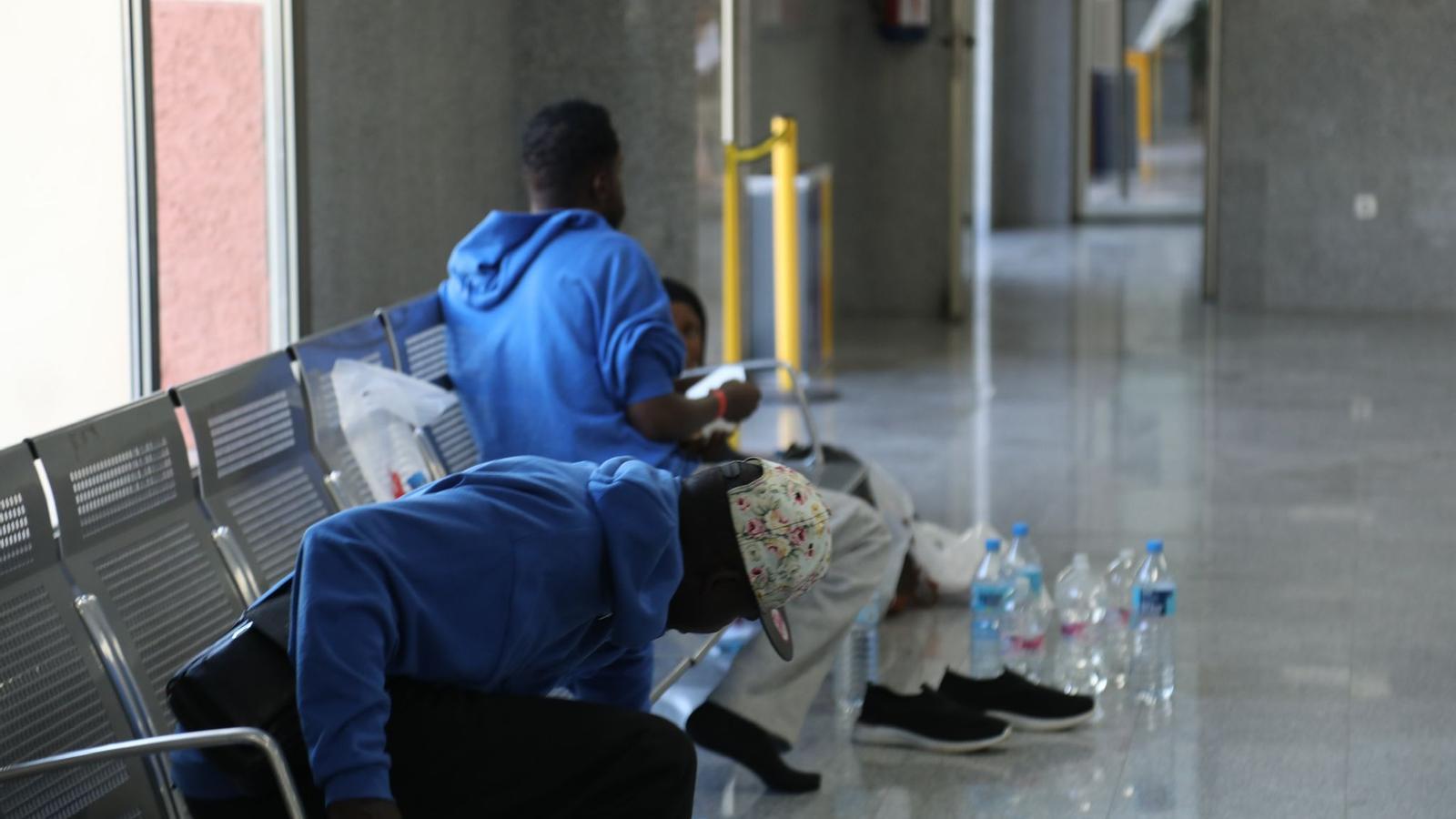Migrants wait seven hours in a boat: Civil Guards accuse Maritime Rescue of institutional racism
Maritime Rescue denies that unequal criteria are applied to carry out rescues.


PalmThe Unified Association of Civil Guards (AUGC) has denounced this Tuesday the situations of "abandonment" in "extreme circumstances" suffered by the migrants arriving by boat to the Balearic Islands, according to the statement released by the organization, which points to cases of up to seven hours without assistance. In fact, the organization accuses Maritime Rescue of "institutional racism" and denounces the lack of resources and serious deficiencies in the institution's protocols for dealing with migrants. Furthermore, the Civil Guards point out that this is not a one-off situation but rather a "regular" one. "It affects both the migrants and the agents themselves, exposed to inhumane 24-hour shifts without the necessary support," the statement says.
"We want to make it absolutely clear that this complaint is not directed against the crew of Salvamar and Guardamar, professionals who carry out their work responsibly and efficiently," continues the AUGC note, which points to the source of the problem as "the decisions made by the Maritime Rescue coordination center, which delays or directly denies departures despite emergency phone calls to 112 and data confirmed by the SIVE system [Integrated Surveillance System. "subjects migrants to inhumane waits and agents to unacceptable risk situations"
The association accuses Maritime Rescue of double standards and criticizes it for having acted more quickly in the case of a sailboat anchored in Cabrera, for example, than when the lives of migrants are at stake. of assistance. "AUGC Baleares denounces the application of unequal and potentially discriminatory criteria, which in many cases borders on racism, based on the origin and status of the person requesting help. It is unacceptable that tourists are given priority over human beings in danger simply because of their nationality or appearance," the statement states forcefully, also making it clear that these professionals are "overwhelmed" and "without resources due to erratic and self-serving decisions." In fact, the association emphasizes that, when the notification is made in person before moving a boat, "a procedure that involves a loss of time and lives."
The statement provides an example from August 18, when a boat arrived in Cabrera at 4:30 p.m. and "Maritime Rescue did not arrive until 11:30 p.m., leaving 14 people in dire conditions." "During these hours, the migrants were left without care: thirst, hunger, exhaustion, and chills due to stress. Two vomited and required medical assistance. The rescue did not end until 3:00 a.m. An inhumane and unjustifiable wait," the organization explains. "While in Cabrera the agents were overwhelmed, in Formentera, where half of the boats arrive, there were three underutilized maritime resources. Cabrera receives twice as many boats but fewer resources. It's incomprehensible," it adds.
Finally, the AUGC demands that "the commitment to respond to any call to 112, without exception" be fulfilled; "more human and material resources, especially in Cabrera"; "a single, equitable, and non-discriminatory protocol"; "political and operational responsibilities." Furthermore, the organization assures that it will not remain silent in the face of the situation. "We will denounce any negligence that endangers human lives, whether immigrants or civil guards. Tourists cannot be prioritized over human beings in danger. This is discrimination, and we will not tolerate it," the statement reads.
Maritime Rescue denies the facts
Maritime Rescue has denied that it establishes any type of distinction or discrimination in the conduct of its rescue operations at sea. This statement came after the Unified Association of the Civil Guard (AUGC) in the Balearic Islands accused its Coordinating Center (and not its officers) of applying an "unequal and potentially discriminatory criterion that in many cases borders on racism" by discriminating between tourists, whom they supposedly assist promptly, and migrants.
Maritime Rescue has rejected the accusations and asserted that it does not establish "any distinction or discrimination in the conduct of its rescue operations at sea," as this would constitute a breach of the duty to provide assistance as defined in current legislation. The professional association of Civil Guards has cited two recent incidents as an example of the "priority" that tourists supposedly receive over migrants.
For its part, Maritime Rescue has recalled that its mandated missions are the protection of human life at sea, the prevention and control of marine pollution, and the control of maritime traffic, but not actions related to people or vessels on land or the transfer of people from land to land. However, it indicated that last Monday it received a request for collaboration to carry out the transfer of 14 migrants from Cabrera to Palma, a collaboration that was accepted and carried out "when operational availability was available." Maritime Rescue has emphasized that it maintains a "close and excellent" cooperative relationship with the Civil Guard within the scope of their respective responsibilities.
